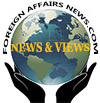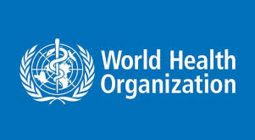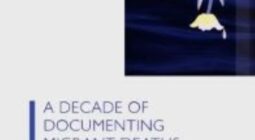The Internet for Trust Conference kicked off on February 22 at UNESCO Headquarters.
The UNESCO conference dedicated to discuss the draft global guidelines for regulating digital platforms, to safeguarding freedom of expression and access to information came to an end gathering 4,300 participants in person and online, said a report.
Director-General of UNESCO Audrey Azoulay welcomed the delegation in which an inspiring speech was delivered by Nobel Peace Prize and 2021 UNESCO/Guillermo Cano Press Freedom Prize winner Ms. Maria Ressa.
The Prime Minister of Iceland, H.E. Katrín Jakobsdóttir and the President of Brazil, H.E. Luiz Inácio Lula da Silva also gave their messages at the opening session,
A vivid discussion moderated by Carole Cadwlladr (The Guardian, The Observer), Felipe Neto, Maria Ressa and Melissa Fleming stressed the need for digital platforms to protect the public sphere and the information ecosystem from manipulation, hate speech, violence and other content that is damaging democracies and societies in unprecedented dimensions and speed.
The debate also drew attention to the role of influencers, calling on them to come to the table and use their power to improve the quality of online information, the report said.
The opening was followed by a series of panel discussions with several participants highlighting the need to hold governments and regulators accountable following human rights standards.
Comments from in person and online participants were taken during the sessions. Online participants connected from different parts of the world and there were comments from members of each multi stakeholder group.
On this occasion, UNESCO is launching a global campaign to raise awareness and encourage discourse around regulation of digital platforms that focuses on the protection of human rights.
The conference brought to the table different stakeholders including governments, independent regulators, digital companies, academia, the technical community and civil society.
Among the issues raised were how to make platforms more transparent and have content governance policies and practices consistent with human rights standards; striking a balance between AI and human moderation; fostering greater engagement by civil society, youth, influencers and other actors in shaping an internet of trust.
The global dialogue to discuss the guidelines was well received by various stakeholders, among them the European Commissioner for Values and Transparency, Věra Jourová. However, participants agreed that there are still many issues to discuss following a multistakeholder process, especially with actors from the Global South, it added.
The points of reflection arising from the various panel discussions and comments from the audience in presence and online, will be analyzed in the coming months.
UNESCO will continue to receive comments on the guidelines until March 8. Contributions can be submitted through the online commenting platform. A new draft is expected to be available by the end of March 2023.
As the UN agency with a global mandate to defend and promote freedom of expression, UNESCO seeks to guide the processes of regulation of the digital ecosystem with a human rights-based approach.






